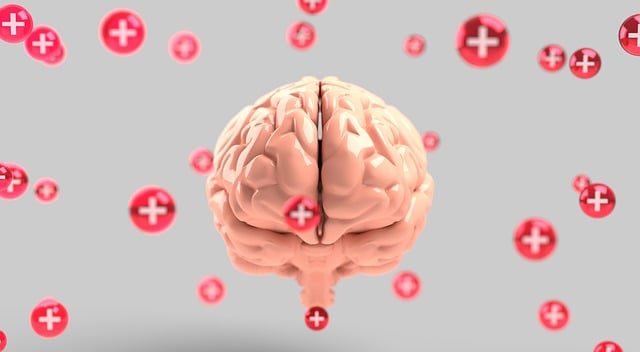Depression prevention involves understanding genetic, biochemical, and environmental factors. Identifying risk factors through Castle Rock Independent Medical Evaluations (CRIMEs) enables personalized strategies. Cultural sensitivity, evidence-based practices like mindfulness and CBT, and early interventions are crucial. CRIMEs provide unbiased, comprehensive mental health assessments, integrating medical history, psychological tests, and interviews to drive effective therapy and policy advocacy. Regular CRIMEs help identify early warning signs and risk factors, while empathy-building techniques and mindfulness meditation enhance resilience and emotional regulation, promoting prevention strategies for depression.
Depression is a prevalent yet complex mental health challenge. This article explores comprehensive strategies to prevent and manage it, focusing on understanding the root causes. We delve into identifying risk factors and triggers, emphasizing the significance of Castle Rock Independent Medical Evaluations as a pivotal step in therapy. By nurturing mental well-being through effective prevention strategies, individuals can fortify their resilience against depression.
- Understanding Depression: Identifying Risk Factors and Triggers
- Castle Rock Independent Medical Evaluations: A Key Step in Therapy
- Effective Prevention Strategies: Nurturing Mental Well-being
Understanding Depression: Identifying Risk Factors and Triggers

Depression is a complex mental health condition that requires a nuanced understanding to prevent effectively. Identifying risk factors and triggers is a critical step in this process, as it allows individuals and healthcare providers to develop tailored strategies for prevention. Some key factors that contribute to depression include genetic predisposition, brain chemistry imbalances, hormonal changes, chronic illnesses, and significant life events or traumas. For instance, someone with a family history of depression might be at a higher risk and could benefit from early interventions like Castle Rock independent medical evaluations.
Cultural sensitivity in mental healthcare practice is also essential, as different cultural backgrounds can influence how individuals express and perceive emotional distress. Incorporating stress reduction methods, such as mindfulness practices or cognitive behavioral therapy (CBT), can help manage potential triggers. Additionally, self-awareness exercises that promote introspection and understanding of one’s emotions can be powerful tools in prevention. By recognizing personal triggers and leveraging appropriate strategies, individuals can better navigate their mental health landscape.
Castle Rock Independent Medical Evaluations: A Key Step in Therapy

Castle Rock Independent Medical Evaluations play a pivotal role in therapy, offering a comprehensive assessment that goes beyond self-reported symptoms. This unbiased, professional evaluation is crucial for individuals seeking to understand and address underlying mental health concerns, particularly depression. By integrating data from various sources, including medical history, psychological tests, and interviews, these evaluations provide a detailed picture of an individual’s emotional well-being.
This in-depth approach facilitates personalized treatment plans that cater to unique needs, enhancing the effectiveness of therapy. Moreover, understanding the interplay between physical health and mental health through Castle Rock Independent Medical Evaluations is essential for developing a robust Mental Health Policy Analysis and Advocacy strategy. Ultimately, these evaluations empower individuals with self-awareness exercises, enabling them to make informed decisions about their emotional well-being.
Effective Prevention Strategies: Nurturing Mental Well-being

Nurturing mental well-being is a cornerstone of effective depression prevention strategies. Regular Castle Rock Independent Medical Evaluations play a vital role in identifying early warning signs and risk factors, enabling timely interventions. Mental health professionals can conduct comprehensive assessments to gauge an individual’s psychological state, utilizing tools like risk assessment models to predict potential outcomes. By integrating these evaluations into routine care, healthcare providers can proactively address depressive symptoms before they escalate.
Beyond formal assessments, fostering empathy and practicing mindfulness meditation are powerful strategies. Empathy building techniques encourage open communication, helping individuals feel understood and validated. Mindfulness meditation, on the other hand, promotes emotional regulation by training the mind to stay present and non-judgmental. These approaches create a supportive environment, enhancing resilience against depression and cultivating a deeper sense of inner peace and stability.
In addressing depression prevention, understanding risk factors and triggers is paramount. Castle Rock independent medical evaluations play a pivotal role in therapy by providing comprehensive assessments tailored to individual needs. By adopting effective prevention strategies focused on nurturing mental well-being, individuals can proactively manage their mental health. Integrating these insights and practices into daily life can significantly reduce the risk of depression and promote overall resilience.














